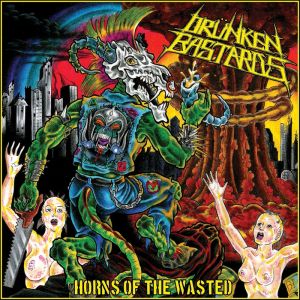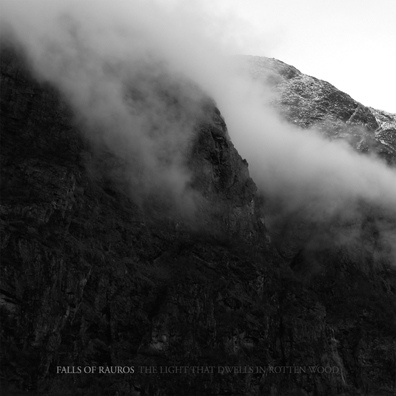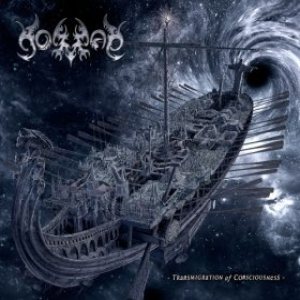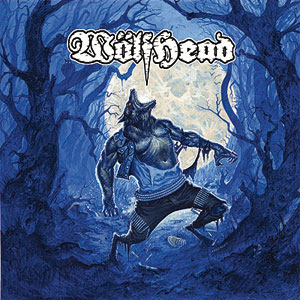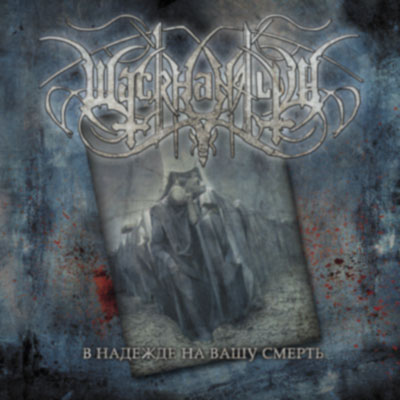When a Black Funeral guitarist forms another group, I would have expect something piercincly cold industrial black metal again, but that is quite far from the truth in the case of Prosanctus Inferi that delivers some utterly disgusting death metal on their major debut Pandemonic Ululations of Vesperic Palpitation.
All the thirteen songs are brief, resulting in a less than 26-minute whole, and musically they are utterly disgusting and chaotic, swift pieces of all that is rotten and abominant. The songs seem very incoherent as the drums blast the hell out of everything all the way through and guitars deliver insane lines of discordance that is very hard to grab on. Listening to Pandemonic Ululations of Vesperic Palpitations throughout is like a dive into a whirlwind in which one loses all control of himself and sucks up everything that this morbid creature compels.
A careful and devoted listener might eventually find Pandemonic Ululations of Vesperic Palpitations enough catchy, but for a regular listener this will be that very whirlwind. But does that matter in the end? I’d guess that’s one of the points of the album: a totally fucked up feast on crumbling menace that lives for the spirit rather than compositional values.
In spite of the music’s chaotic nature, the production deserves a favorable mention. It’s natural and, in a way, warm, so that although the actual music might be a total mess at times, every second of the album is still pleasure to the ears. Pandemonic Ululations of Vesperic Palpitations does not blow my mind with ingenuity but is still a worthwile effort to check out of ugly and bestial death / black metal bands appeal to you - basically meaning all kinds of bands that American labels Nuclear War Now! and Hells Headbangers usually convey.
2.5 / 5



